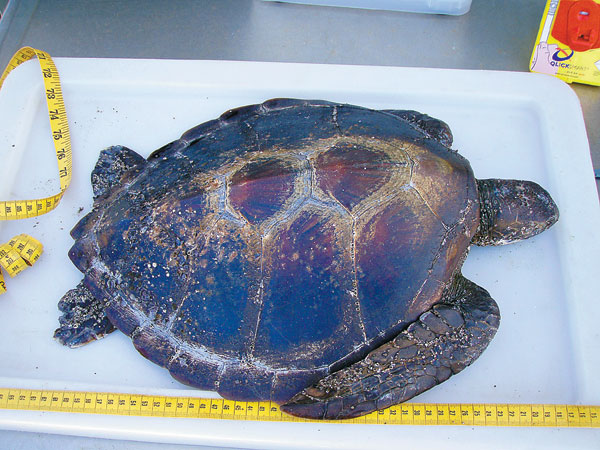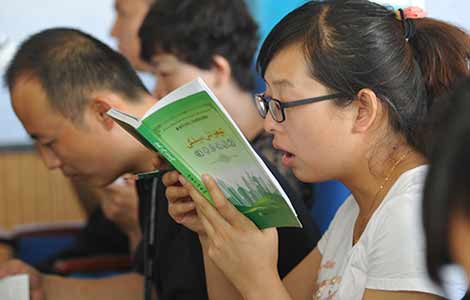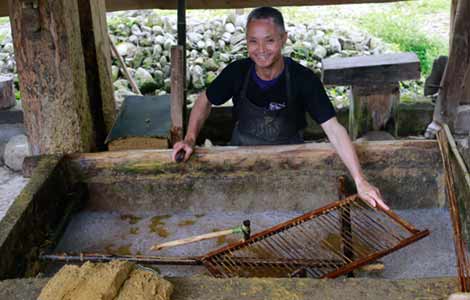More sea turtles are eating deadly plastic
Updated: 2013-08-10 11:18
(Agencies/China Daily)
|
|||||||||||
Endangered green turtles are ingesting more man-made debris, including potentially lethal plastic products, than ever before, a new Australian study has shown.
 |
|
This photo released by University of Queensland shows a green sea turtle after large quantities of marine debris were removed from its body. Kathy Townsend / University of Queensland via AFP |
The majestic turtles are significantly more likely to swallow plastic than they were in the 1980s, according to the study published in the journal Conservation Biology.
The research reviewed scientific literature on the ingestion of man-made rubbish in the ocean by sea turtles published since 1985.
It showed that six of the world's seven species of sea turtles have been found to ingest debris, and all six are listed as globally vulnerable or endangered.
"We found that for green sea turtles, the likelihood that a sea turtle has ingested debris has nearly doubled in the last 25 years," Qamar Schuyler from the University of Queensland, who led the study, said on Friday.
"Specifically for green turtles, it does appear that they are eating a lot more debris than they used to."
The study found that the likelihood of a green turtle, which can grow to 1.5 meters and live for 80 years, ingesting debris jumped from about 30 percent in 1985 to nearly 50 percent in 2012.
The research said it was clear that since the first data was recorded more than 100 years ago, the amount of refuse leatherback turtles had ingested had also increased.
However, between 1985 and 2012 their intake had been stable.
Plastic products eaten by turtles and other marine life can be lethal, killing the animals by either blocking their stomachs and starving them or through puncturing their intestinal system.
Schuyler said ingested plastics could also be releasing toxins into the animals, either through chemicals in the plastics or after products have absorbed toxins in the ocean.
"The animal may not die of that right away but it may affect things like their reproductive cycle and that has longer-term consequences," she said.
Schuyler, a doctoral candidate, said the data showed that turtles washing up with lots of plastic in them were not necessarily found in the most polluted or populated places.
"So it means that they are ingesting that debris usually somewhere farther away from where they end up," she said, adding that this suggested that a global response was needed to counter the problem.
The research, analyzing 37 studies published from 1985 to 2012 that reported on data collected from before 1900 through to 2011, found that turtles in nearly all regions ingested debris, most commonly plastic.
Related Stories
BP spill spurs call to halt release of sea turtles 2010-07-08 10:19
Finding turtle heaven in Thailand 2013-07-14 08:07
Japan disaster money spent on counting turtles 2013-06-04 08:20
Turtle hatchlings released to sea 2012-11-15 14:22
A problem sea turtles can't solve 2011-09-02 10:29
Trauma center treats sea turtles 2011-08-15 14:16
Today's Top News
3 Chinese citizens killed, 2 missing in Afghanistan
Trade disputes hit solar export prices
New loans, social financing fall again
Industrial growth gaining momentum
Mandela manages to sit up
Arctic trade route opens
Rough road to continue for domestic carmakers
China's inflation rises 2.7% in July
Hot Topics
Lunar probe , China growth forecasts, Emission rules get tougher, China seen through 'colored lens', International board,
Editor's Picks

|

|

|

|

|

|





